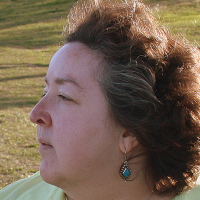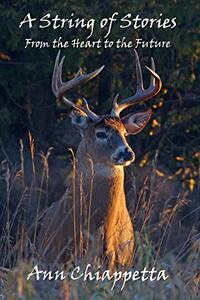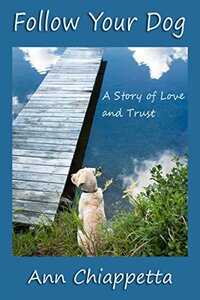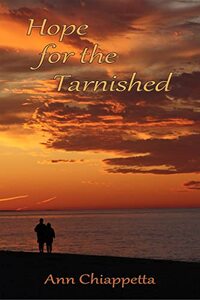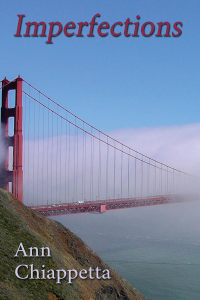Genre:
Literary Fiction Biographies & Memoirs- Country: United States
- Books: 4
- Profession: Author and content writer
- Member Since: Sep 2022
- Profile Views: 1,036
- Followers: 60
- VISIT AUTHOR: Website, Join Author's Newsletter, Facebook, Twitter, Amazon,
Ann is an artist and often refers to her love of words as a natural compensation after losing her vision in 1993. Once a designer of acrylic displays and furniture, Ann trained her creative senses to flow over from the visual to the literary arts. Years later, she has become a poet and author, honing her talent in various mediums, including web content for nonprofits, regular bylines for online literary publications, poetry, anthologies and guest editing in online literary journals.
Ann possesses a master of science in Marriage and family therapy from Iona College and an undergraduate degree from the College of New Rochelle, both located in Westchester County, New York. A guide dog handler and advocate, Ann volunteers her time representing people with visual impairments and guide dog users on various National, State and local boards of directors. A consultant and guest presenter, Ann visits schools promoting awareness and equality for people with disabilities. She is the 2015 recipient of the WDOM Spirit of Independence award and the 2019 GDUI Lieberg-Metz award for excellence in writing.
Ann Chiappetta's Books
Stay in the loop on books by Ann Chiappetta. See upcoming and best-selling books by the author here. You'll also find the deals on books by Ann Chiappetta.
** Please note that the information or price displayed here may not be the updated. Make sure to double-check the latest book price before buying books.
** Also, there might be other books by Ann Chiappetta not listed on AllAuthor.
| Book |
|---|
Ann Chiappetta Interview On 21, Aug 2024
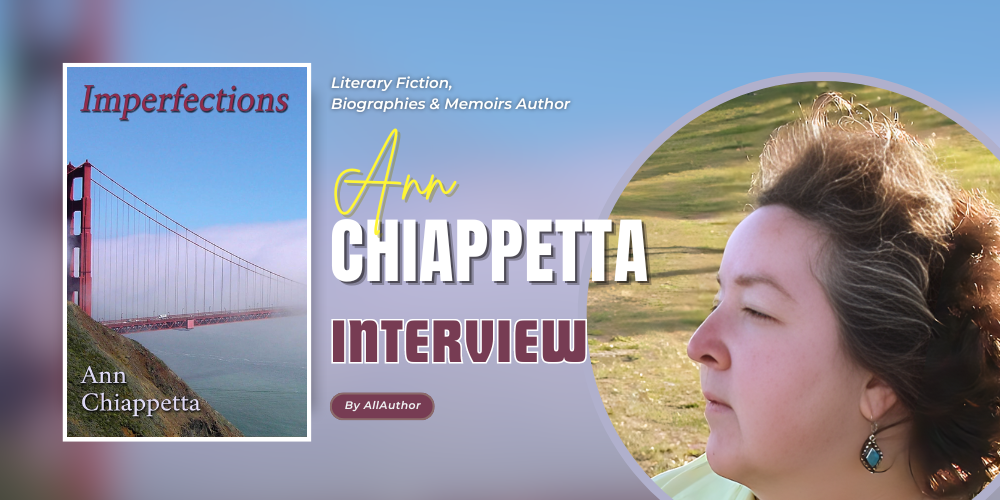 "Ann is a talented artist and writer whose journey into the literary arts was sparked by the loss of her vision in 1993. Over the years, Ann has established herself as a poet and author. In addition to consulting and guest speaking, Ann visits schools to promote awareness and equality for people with disabilities. Her contributions to the field have been recognized with the 2015 WDOM Spirit of Independence Award and the 2019 GDUI Lieberg-Metz Award for Excellence in Writing."
"Ann is a talented artist and writer whose journey into the literary arts was sparked by the loss of her vision in 1993. Over the years, Ann has established herself as a poet and author. In addition to consulting and guest speaking, Ann visits schools to promote awareness and equality for people with disabilities. Her contributions to the field have been recognized with the 2015 WDOM Spirit of Independence Award and the 2019 GDUI Lieberg-Metz Award for Excellence in Writing."
The transition I made from visual art to the literary kind came slowly, following a path parallelling my path of rehabilitation and learning to live as a person who is blind.
My blindness journey began after my first child was born. I returned to work four months after giving birth and discovered I couldn’t read design sketches or pencil drawings unless the lines were dark and bold. The calculator display and the computer screen were becoming difficult to see. I went to my family ophthalmologist. He sent me for testing. He said I had a genetic eye disease that would eventually take all my sight and it had no cure. He also referred me to the State vision rehabilitation service. It was a traumatic period of time for me and my new family. One day I opened my journal and began writing.
What inspired you to channel your creativity into writing and poetry after your vision loss?I am and always will be a voracious reader. Writing was a natural outflow. I would read a book or a poem and think, I could write something like it. I stole time to write in my journal and wrote poems after going back to college. I write to find out what I think or feel, and instead of creating visual art I paint word pictures.
What were some of the biggest challenges you faced while transitioning to literary arts, and how did you overcome them?I struggled with not being able to read with my vision. It took time to train my ears to listen to audio books and text-to-speech computer programs like JAWS. Now, years later, my listening skills are highly advanced.
Fortunately I benefitted from a great rehabilitation counselor and she assisted me in receiving recorded books from the National Library Service.
The next issue was pursuing my educational goals. The final hurdle was being able to ride the wave of this thing called a computer. I lost my sight in 1993 and in 1995 I received computer training with a computer equipped with magnification and text-to-speech programs.
In today’s world, access to materials is no longer an issue for the most part.
Which of your literary works are you most proud of, and why?I am proud of all my books for differing reasons, but Follow Your Dog a Story of Love and Trust is my first book after my poetry was published and set the stage for me as a writer who is blind.
Can you tell us more about your role in representing people with visual impairments and guide dog users on various boards of directors?I landed a position in 2008as a project coordinator at an Independent Living Center, a nonprofit organization advocating for people with disabilities. From there I trained as an advocate and found myself taking on causes and defending the human and Civil Rights of consumers with disabilities. Today, I serve on the National boards of the American Council of the Blind and am president of Friends in Art, a Nationally known organization of blind artists.
How has being a guide dog handler influenced your life and work?Sharing my life with a guide dog makes losing my sight bearable and often allows me not to feel blind. I describe it as feeling unfettered. Sometimes it feels like flying. I spend more time with my dog than most of my family, especially during my career. The beauty of our relationship gave me the courage to reach beyond limitations and set goals for myself I never would have considered. The Writing and publishing of six books began, in part, because of the emotional healing gifted to me by working with a guide dog.
How did it feel to receive the WDOM Spirit of Independence award and the GDUI Lieberg-Metz award for excellence in writing? What do these awards mean to you?I was pleased to have received these awards. The WDOMI award was a surprise, as I had moved onto a job in the Federal sector five years before being chosen for the award. I very much respect my colleagues and being recognized for being an advocate is special. The Leiberg Metz award for my writing in the guide dog community confirms my writing matters and people are reading and appreciating my efforts.
What are some of the key messages you aim to convey when you visit schools to promote awareness and equality for people with disabilities?The first statement I make is no question is a bad question. Questions are wonderful! I let people know being blind is a part of me but it is only one part of me. Sometimes it is hard and sometimes I am sad about it but most of the time I go about my life like everyone else.
Normalizing blindness or any type of disability is what I aim for and inviting people to allow their curiosity into our conversation removes bias and ignorance. Kids absorb more than adults in this manner. I explain the laws made to protect people with disabilities and the Americans with Disabilities Act (ADA) and what it does.
I explain how to approach someone who is blind, ask the person if they need help and if the person says no, accept the answer. I explain why a guide dog should not be petted or distracted, a working dog needs to focus and distracting it could endanger the blind person it is guiding.
How has your background in marriage and family therapy influenced your writing?Thanks to my educational background in psychology and human behavior, the emotion and character development isn’t hard for me to write. I think it gives me a more realistic perspective on how my characters interact, say and act. I know my background assists me in producing poetry that is emotionally satisfying for readers based on what readers have shared with me.
How do you balance your time between writing, advocacy, and your work as a consultant and guest presenter?Since retiring and moving to a less urban environment I find time for all my pursuits is much easier to manage. I also ended some advocacy pursuits after moving from one State to another for practical reasons. When I need a break or thinking time, I sit on the patio and listen to the nature sounds or tend to the herb garden or play with the dog or plan a meal with my husband.
Can you walk us through your creative process when you start a new piece of writing?There is a differing process for me in writing a poem compared to the writing of a novel or short story.
Writing a poem is usually a shorter process because poems are shorter than a story or a novel. A poem could be written from a prompt or from just about any topic I am curious to explore.
I use a rough outline and main idea when beginning a story. If I can, I will write up a scene-by-scene synopsis, sketch in the characters. Sometimes the ending is written first, other times the entire first chapter is all backstory and I use it later. I blend in the plot and timeline as I go. My process is fluid and a novel takes about two years to write edit and offer to some of my trusted readers to give feedback prior to my final draft.
Who have been your biggest supporters and influences throughout your literary journey?My Mom was my biggest fan and supporter. There are a key number of people in my life who support me creatively speaking. My husband accepts the fact I am an artist and author and gives me plenty of creative space in our lives. My main writing group, Behind Our Eyes, and friends who are poets and writers are appreciated and provide me immeasurable gifts of encouragement. DLD Books, the editing and production company I use to assist me in formatting and publishing my books independently is another supporter. I also want to acknowledge the fans of my writing, these folks matter it means my writing is reaching people and this is why I write.
What technological aids or tools have been most helpful in your writing process?My computer and assistive technology are the most important. The World Wide Web and internet are the reference tools and marketing tools I use to reach out to the world. I’ve tried writing apps and programs but most are not configured to accommodate speech programs I rely on to access my computer.
What are some of your upcoming projects or goals that you’re excited about?I am working on my third contemporary fiction novel. I am also working on writing a third poetry collection which I hope to get accepted by a boutique poetry house.
When did you join AllAuthor? What has your experience been like?I joined six months ago. I like the friendly and helpful feeling but I wish more of the website , contests, and tools offered could be made more accessible to writers who are blind.
Ask Ann Chiappetta a Question
Have brimming questions to ask author Ann Chiappetta? Ask whatever you like, but keep it appropriate.
** Please note that unanswered questions will not appear on the page. Refrain from posting promotional messages.
